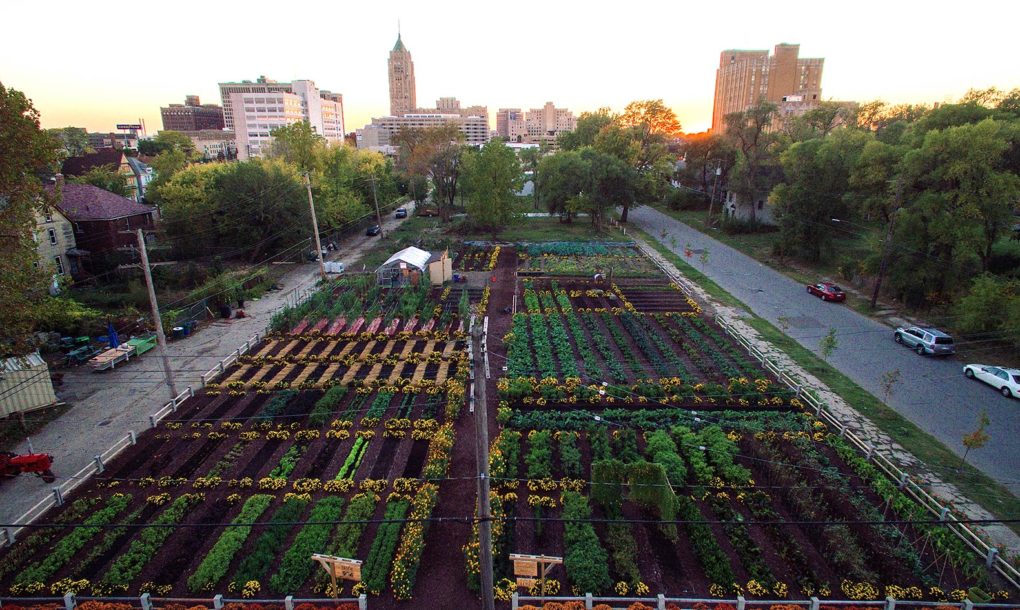Gaining food independence in the city: Researchers are working on new technologies for growing food sustainably in small, controlled spaces
02/24/2019 / By Jhoanna Robinson

Researchers at the Center for Lighting Enabled Systems & Applications (LESA) at Rensellaer Polytechnic Institute (RPI) in Troy, New York and the controlled environmental agriculture (CEA) team in Ithaca-based Cornell University are teaming up to work on a $2.42 million program to promote urban farming, which is the production of food in a heavily populated city.
The grant for the three-year program comes from the National Science Foundation through its new funding initiative called “Innovation at the Nexus of Food, Energy and Water” (INFEWS).
Researchers say that CEA, which include greenhouses or plant factories, can provide new options other than the usual systems of field-based production and multi-state transportation to provide metropolitan areas with locally produced vegetables.
Other benefits of metro CEA include less frequent transportation of the food, decreased water use as compared with field-based production, job generation, and inevitably, economic growth. (Related: How to get your communit moving towards food independence.)
“Through the RPI and Cornell partnership, this research addresses many challenges currently being faced by metropolitan food producers. We look forward to utilizing advanced technologies to increase resource use efficiency across the urban farming industries,” Tessa Pocock, TESSA senior research scientist and a global expert on photobiology and relationships between lighting and plant physiology, said.
Pocock will study how light-emitting diode (LED) light programs affect water use efficiency and nutrient content of crop plants. She will be helped by Rensselaer department of civil and environmental engineering associate professor Marianne Nyman.
“I look forward to being a part of this exciting project in advancing the field of urban farming research by inventing new analytical measurement methods for selected xanthophylls (nutrients) as these types of standards are very expensive for general use.
“The collaboration with researchers from RPI and Cornell will create opportunities for us to also evaluate novel systems to optimize economic benefits as well as water, energy, and other resource use efficiencies in CEA vegetable production,” Nyman said.
Completing the band of researchers is a team of CEA experts led by Neil Mattson, the lead investigator of Greenhouse Lighting and Systems Engineering Consortium (GLASE) at Cornell and associate professor in the Horticulture Section of the School of Integrative Plant Science at Cornell on CEA economic modeling, system design, and workforce development.
France tops food sustainability list, U.S. all the way down at no. 21
France topped the Food Sustainability Index in 2017, which London-based Economist Intelligence Unit uses to assess 35 countries based on standards such as environmentally friendly agriculture, quality nutrition, and food waste.
In 2016, France became the first country to require supermarkets to give unsold food to charities.
So where does the United States figure in all this? The U.S. is at number 21. This probably might have something to do with the fact that America faces huge problems when it comes to food waste. Food waste is the second largest component of the country’s waste stream, right behind paper, and comprises 18 percent of the material that is collected by the waste management system annually.
Too much food waste decays in a landfill is bad for the environment, as they cause the release of methane gas in the air, thus polluting the atmosphere as it becomes a greenhouse gas.
To gain more knowledge on food sustainability, urban farming, and food independence, visit FoodSupply.news.
Sources include:
Tagged Under: food democratization, food independence, food independent, food security, food supply, food sustainability, food waste, green living, grocery, quality nutrition, sustainability, sustainable living, Urban Farming



















